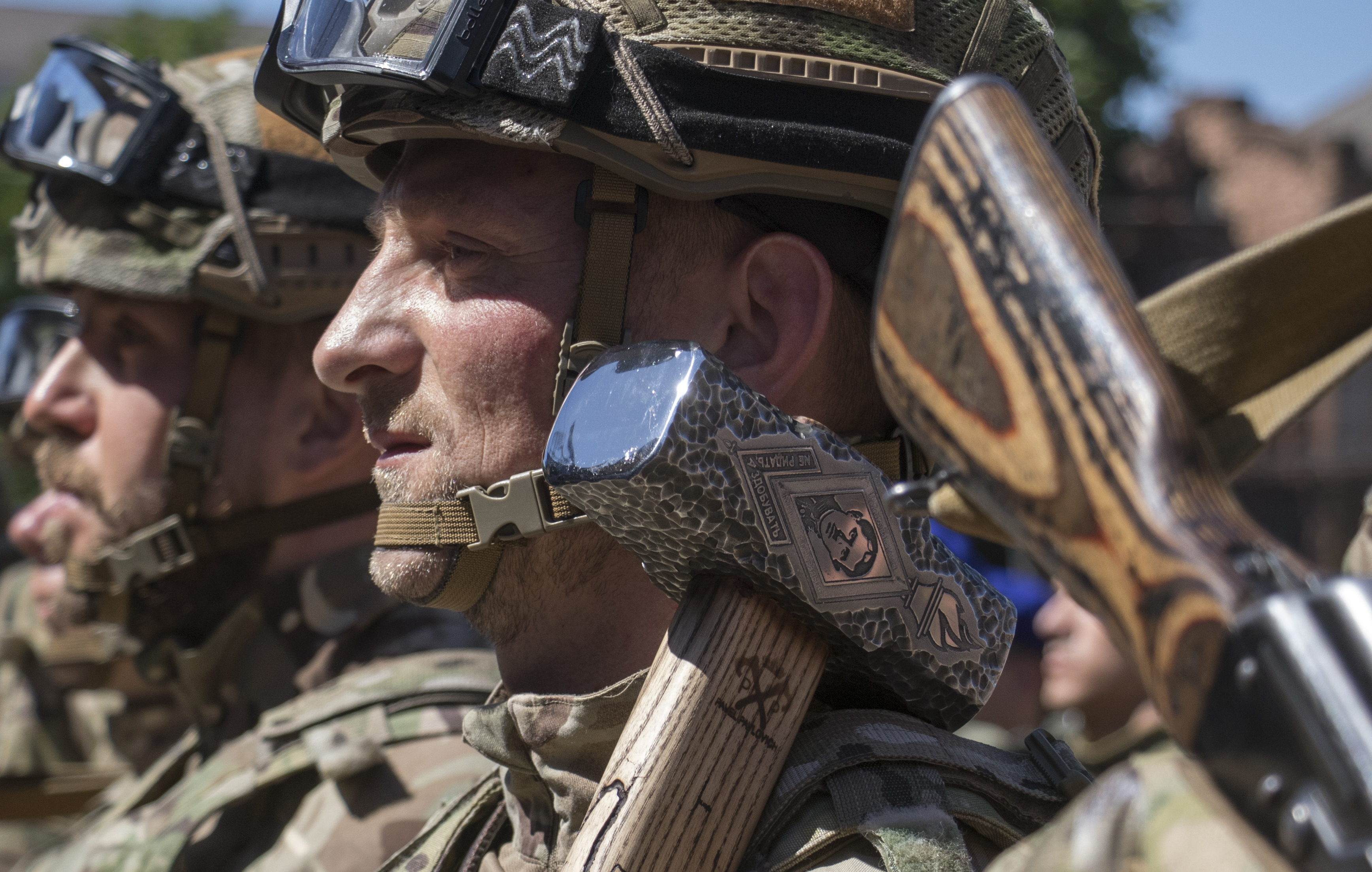The Azov Regiment, which has far-right and ultra-nationalist roots, has been one of the most prominent Ukrainian military formations fighting against Russia in eastern Ukraine.
Russia has regularly cited Azov in support of its assertion that Ukraine is controlled by "fascists". Russian state propaganda has compared Azov fighters to World War Two-era Nazis, whose defeat by the Soviet Union remains a core part of Russian national identity.
Previously based in the eastern Ukrainian port city of Mariupol, many of the regiment's personnel were captured by Russian forces when the city fell in May after an almost three-month-long siege.
Officials in the Donetsk People's Republic, the Russian-backed entity which claims Mariupol as part of its territory, said in May that captured Azov Regiment fighters could face the death penalty under the self-proclaimed republic's laws.
This content was produced in Russia, where the law restricts coverage of Russian military operations in Ukraine.
(Reporting by Reuters; editing by Guy Faulconbridge)





 A member of the Ukrainian National Guard regiment 'Azov' holds a hammer with portrait of Yevhen Konovalets, a military commander and political leader of the Ukrainian nationalist movement in 1929-1938 during their march in the eastern Ukrainian city of Mariupol, Ukraine, 15 June 2019. EPA-EFE/SERGEY VAGANOV
A member of the Ukrainian National Guard regiment 'Azov' holds a hammer with portrait of Yevhen Konovalets, a military commander and political leader of the Ukrainian nationalist movement in 1929-1938 during their march in the eastern Ukrainian city of Mariupol, Ukraine, 15 June 2019. EPA-EFE/SERGEY VAGANOV